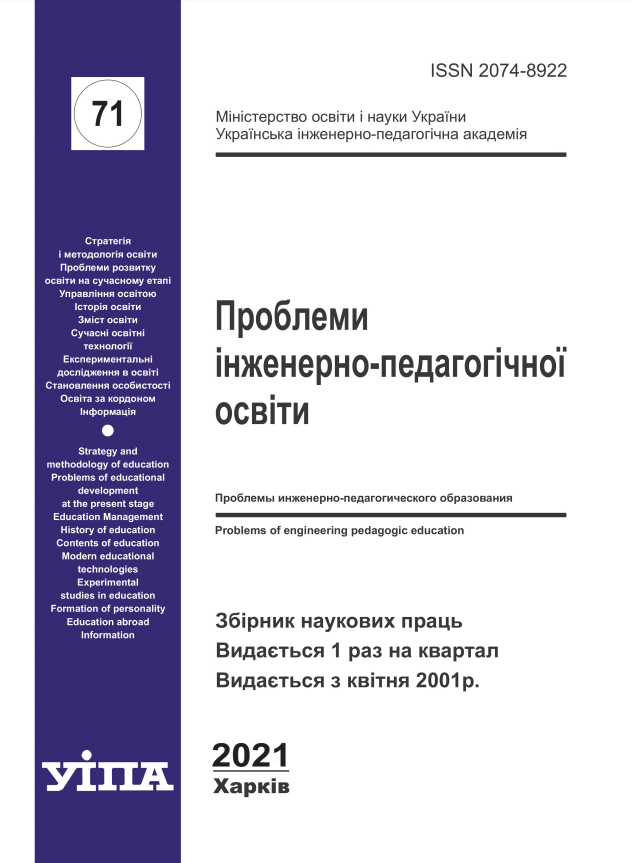Abstract
The article considers the conditions for the formation of political competence of cadets of higher
military education institutions of Ukraine. The necessity of strengthening humanitarian training, in particular
political orientation, as well as the necessity of mastering the direction of civil-military cooperation is
considered. The standard basic plan, standards of military education of NATO member countries are
analyzed in detail. The conditions for reforming higher education in Ukraine are considered. The article also
dwells upon consequences of unformed political competence in society, including the lack of national unity
and the existing political confrontation based on ideological and socio-economic differences; lack of legal
culture and legal nihilism of citizens; ethno-national and social problems in society stemming from political
ignorance. The activity of the International Association of Military Pedagogy and its role in the training of
military specialists are considered. The need to strengthen humanitarian training in higher military
institutions is described as a basis for training that meets the standards of NATO member countries. The
main normative documents in which the course of cooperation between Ukraine and NATO is prescribed are
analyzed. It is concluded that in the world the political competence of a future officer is no less important
than their military competence, because under certain conditions it allows preventing military conflict and avoiding human casualties. Also, the successful experience of the processes of formation of political
competence in future officers in foreign countries acquires important practical significance in the process of
vocational training in higher military education institutions of Ukraine. It is concluded that the political space
is constantly changing, the development of information and communication technologies generates an
uncontrolled or specifically biased information flow of news, and therefore unformed political competence is
a threat to national security. It is also emphasized that the motivational component for the formation of
political competence in future officers depends in part on the desire of the person for self-development and
self-improvement.

This work is licensed under a Creative Commons Attribution-NonCommercial-NoDerivatives 4.0 International License.
Copyright (c) 2021 Problems of Engineer-Pedagogical Education

